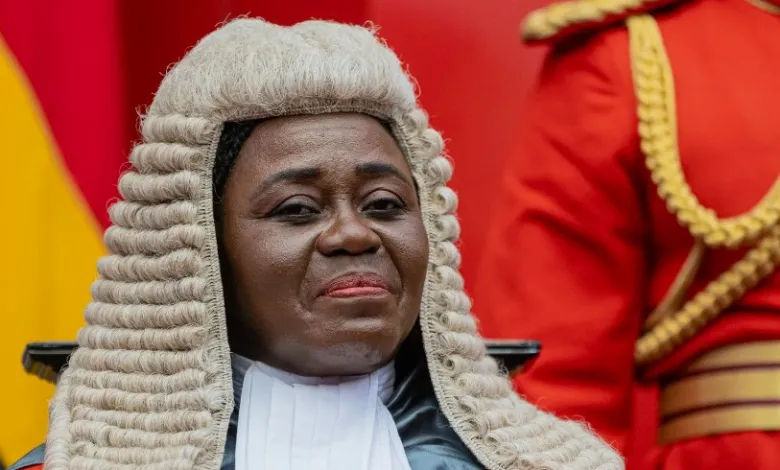Paragraph 1: The Petition Against Chief Justice Torkornoo
The Shining Stars of Ghana, a civic group, petitioned President John Dramani Mahama to remove Chief Justice Gertrude Torkornoo from office. The petition, dated February 14, 2025, alleged "stated misbehavior" and "incompetence" as grounds for removal, citing Article 146(1) of the 1992 Constitution. They defined "misbehavior" as abuse of office undermining public confidence in the judiciary, and "incompetence" as the inability to maintain high judicial standards due to improper administration of judicial procedures.
Paragraph 2: Allegations of Misbehavior
The group pointed to two specific instances to support their misbehavior claim. First, they cited Chief Justice Torkornoo’s May 30, 2024 proposal to then-President Nana Akufo-Addo recommending five judges for appointment to the Supreme Court. They argued this violated Article 144, which outlines procedures for judicial appointments, stating that the Chief Justice has no authority to formally make such recommendations. Second, they criticized her handling of the Afenyo-Markin v. Speaker of Parliament case, arguing that her actions amounted to incompetence and a breach of natural justice principles.
Paragraph 3: Allegations of Incompetence and Breach of Natural Justice
The petitioners focused on the Chief Justice’s handling of the Afenyo-Markin case concerning the Speaker of Parliament’s declaration of four parliamentary seats as vacant. The petitioners argued that the Chief Justice violated the principle of audi alteram partem (hear the other side) by ruling against the Speaker without granting him a hearing or considering his affidavit or legal submissions. They cited the Supreme Court’s own acknowledgment that the Speaker had filed no processes in response to the action, highlighting this omission as a critical flaw in the proceedings. They also pointed to the Speaker’s subsequent application arguing that his rights to natural justice had been breached by the court’s initial ex parte order staying his decision.
Paragraph 4: Chief Justice Torkornoo’s Response
Chief Justice Torkornoo responded to the petition on April 4, 2025, categorically rejecting the allegations. Regarding the accusation of misbehavior related to her judicial appointment recommendations, she invoked the principle of res judicata, arguing that this matter had already been conclusively addressed. She referred to a similar petition filed by Professor Stephen Kwaku Asare in December 2024, which former President Akufo-Addo dismissed after consultation with the Council of State. She also referenced the Supreme Court’s own interpretation of Article 144 in the Ghana Bar Association v Attorney-General case, which affirms the Chief Justice’s role in recommending judicial appointments.
Paragraph 5: Defense of Judicial Decisions and Independence
Concerning the Afenyo-Markin case, the Chief Justice emphasized that the decisions were made by the Supreme Court as a whole, not by her individually. She pointed to Article 128 of the Constitution, which mandates that the Supreme Court sits as a panel of at least five justices. She argued that it was improper to single out any individual judge for criticism regarding the court’s collective decisions. Furthermore, she cited Article 127(3), which grants judicial immunity to judges for acts performed in their judicial capacity, protecting them from personal liability.
Paragraph 6: Dismissal of the Petition and Emphasis on Judicial Processes
Chief Justice Torkornoo concluded that the petition lacked merit and constituted an improper attempt to challenge judicial decisions through non-judicial channels. She reiterated that judicial decisions can only be reviewed through established legal processes within the judiciary. She asserted that the petition’s attempt to hold her personally accountable for a Supreme Court ruling misrepresented the nature of judicial decision-making and disrespected the principle of judicial independence. The Chief Justice’s response effectively closed the matter, leaving the Shining Stars of Ghana and other groups with limited recourse outside of appealing the initial Supreme Court judgment through established legal channels.


